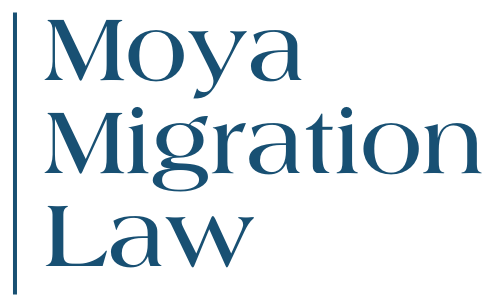Introduction
The refusal of an Australian parent visa application can be a devastating experience for families, often occurring after years of waiting and significant financial investment. This decision creates financial strain and prolongs the emotional distress of family separation and uncertainty.
However, a visa refusal is not always the outcome, as there are legal pathways available to challenge the visa decision. This guide provides essential information on navigating the Administrative Review Tribunal (ART) appeal process, helping you understand your options and build a strong case for a merits review.
Common Reasons for Parent Visa Refusal
Failing the Balance of Family Test
A primary reason for a parent visa refusal is failing the ‘Balance of Family’ test. This test is a mandatory requirement for most parent visas and is designed to ensure an applicant has strong ties to Australia. The test cannot be waived, even in compelling circumstances.
To meet the test, an applicant must demonstrate that either:
- At least half of their children are ‘eligible children’ who are settled and usually reside in Australia
- More of their children live permanently in Australia than in any other single country
An ‘eligible child’ is defined as an Australian citizen, an Australian permanent resident, or an eligible New Zealand citizen who is usually resident in Australia.
The calculation includes all biological, adopted, and step-children from current or previous relationships. However, deceased children are not included in the calculation.
It is important to note that the test is a numerical assessment and does not consider the quality of the relationship, meaning estranged children are still counted based on their country of residence.
Issues with the Assurance of Support
The Assurance of Support (AoS) is a legal commitment from an Australian resident to provide financial support to the visa applicant, ensuring they do not rely on social security. A visa application can be refused if a valid AoS is not approved by Centrelink.
Rejection of an AoS application often occurs if the assurer’s income is considered insufficient to support the parent.
If an AoS is rejected, you have several options:
- Request an internal review of the decision with Centrelink
- Find an alternative assurer, who does not need to be a family member
- Arrange for up to three people to provide a joint AoS, combining their incomes to meet the required threshold
Health & Character Requirements
All parent visa applicants must meet Australia’s health and character standards. Applicants are subject to a specific health criterion, Public Interest Criteria (PIC) 4005 which, for most parent visas, cannot be waived.
A visa refusal is likely if an applicant’s health condition is deemed to:
- Result in significant cost to the Australian community
- Prejudice access to healthcare for citizens and residents
Furthermore, applicants must be of good character and pass the character test as defined in the Migration Act 1958 (Cth). This assessment includes a review of any criminal history. A substantial criminal record, such as a prison sentence of 12 months or more, can lead to a visa refusal on character grounds.
Request Your Free 15-Min Consultation
The ART Appeal Process
Lodging Your ART Appeal
The first step in the appeal process is to carefully review the decision letter from the Department of Home Affairs. This document outlines the specific reasons for your visa refusal and confirms whether you have the right to a review by the ART.
It is crucial to act quickly, as strict time limits apply to these appeals. For most parent visa refusals, you have between 21 and 28 days from the date you receive the notification to lodge your appeal. Remember that these deadlines are absolute—the ART has no power to grant an extension.
To submit your application for review:
- Complete the required forms through the ART’s online portal
- Upload a copy of the refusal decision
- Pay the application fee
Gathering New Evidence for Your Appeal
A significant advantage of the ART process is that it conducts a “merits review,” meaning it takes a fresh look at your case. This allows you to submit new evidence that was not available or provided when the original visa application was decided, giving you an opportunity to directly address the specific reasons for the refusal.
To illustrate, if your visa was refused for failing the Balance of Family test, you could strengthen your appeal by providing new evidence such as:
| Type of Evidence | Purpose & Example |
|---|---|
| Proof of Status Change | Demonstrating that another child has since become an Australian permanent resident or citizen. |
| Updated Residency Documents | Confirming the current residency status and location of all children to address the Balance of Family test. |
| New Financial Documents | Supporting a revised Assurance of Support (AoS) with a new or joint assurer. |
Gathering powerful new evidence that directly counters the Department’s findings is critical to building a successful visa refusal appeal.
The ART Hearing & Decision
After lodging your appeal, the ART will generally schedule an ART hearing where you can present your case. An ART hearing is less formal than a court proceeding, providing an opportunity for you to give oral evidence and answer questions from the Tribunal Member. You, your sponsor, and any witnesses may attend this hearing.
The ART can make one of several decisions after reviewing your case. The possible outcomes include:
| Decision | Description |
|---|---|
| Affirm | The Tribunal agrees with the Department of Home Affairs’ decision, and the visa refusal is upheld. |
| Set aside | The Tribunal disagrees with the original decision and replaces it with a new one. |
| Remit | The case is sent back to the Department of Home Affairs for reconsideration, often with specific instructions to follow, which typically leads to a visa grant. |
Request Your Free 15-Min Consultation
Timelines & Costs for Your Visa Appeal
ART Appeal Processing Times
It is important to understand that the ART appeal process can be lengthy. Due to a significant backlog of cases, processing times for a decision on a parent visa appeal typically range from 18 to 36 months.
If the parent visa application was made while the applicant was in Australia, they will generally be granted a Bridging Visa. This allows them to remain lawfully in the country while the ART appeal is processed, which can typically take several years to finalise.
Visa Appeal Costs
There is a mandatory application fee to have a visa refusal decision reviewed by the ART. The current fee for a general visa decision appeal ranges between $3,496 and $3,580.
You may be eligible for a partial refund or a fee reduction under certain circumstances:
| Circumstance | Fee Outcome |
|---|---|
| Successful Appeal | If the ART decides in your favour, you will receive a 50% refund of the application fee. |
| Financial Hardship | A 50% reduction in the application fee may be available if you can demonstrate that paying the full amount would cause you severe financial hardship. |
Request Your Free 15-Min Consultation
Options After an Unsuccessful ART Appeal
Appealing to the Federal Court
If the ART affirms the Department of Home Affairs’ decision, you may have the option to appeal to the Federal Court. However, it’s important to understand that this is not another merits review where the facts of your case are re-examined.
An appeal to the court can only be made on the grounds of a legal or jurisdictional error. This means you must demonstrate that the Tribunal made a mistake in law when deciding your case.
The process involves several challenges:
- The grounds for such an appeal are very limited
- The process is highly complex
- Legal experiencedise is essential for navigation
Given these legal intricacies, it is strongly recommended that you seek advice from an experienced immigration lawyer immediately if you are considering this pathway.
Requesting Ministerial Intervention
After an unsuccessful visa refusal appeal at the ART, you have a final option to request that the Minister for Immigration personally intervene in your case. This is not a standard part of the appeal process and is considered a last resort.
The Minister has discretionary powers to grant a visa, but this power is no longer used for broad “unique and exceptional circumstances.” Following new Ministerial Instructions issued in September 2025, a request will only be referred to the Minister if it meets one of the strict, objective criteria outlined in the new guidelines. For a parent visa applicant, the most relevant ground is:
- You have provided evidence that you are the parent of an Australian citizen or permanent resident child who was a minor when the request was made.
It’s worth noting that the Minister is not legally obligated to consider your request, even if it meets a referral criterion. This pathway is reserved for cases that fall squarely within the new legal framework.
Request Your Free 15-Min Consultation
Conclusion
A parent visa refusal can be disheartening, but understanding common reasons like the Balance of Family test and AoS issues is the first step toward a successful appeal. Navigating the ART process requires acting within strict time limits, gathering strong new evidence, and being aware of further options like court appeals or Ministerial Intervention.
Navigating the visa refusal appeal process requires careful preparation and an in-depth understanding of immigration law. For trusted experiencedise and guidance tailored to your case, contact our experienced visa refusal appeal lawyers at Moya Migration Law in Adelaide today to secure the best possible outcome for your family.









